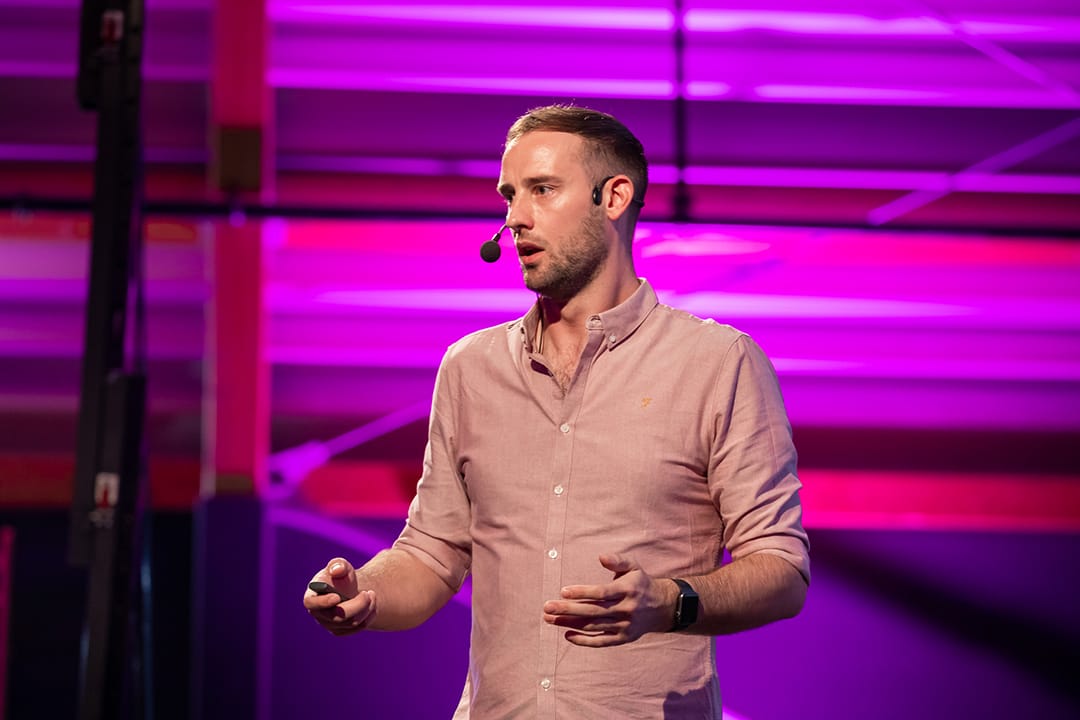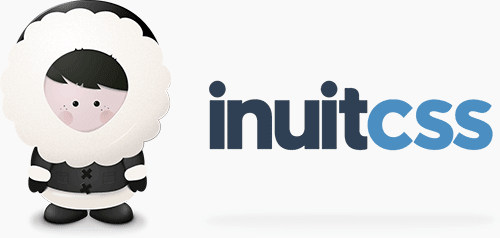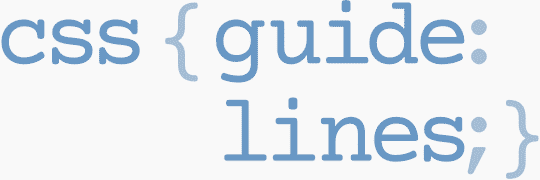By Harry Roberts
Harry Roberts is an independent consultant web performance engineer. He helps companies of all shapes and sizes find and fix site speed issues.
Written by Harry Roberts on CSS Wizardry.
N.B. All code can now be licensed under the permissive MIT license. Read more about licensing CSS Wizardry code samples…
Last night I was set to speak at Speak the Web in Liverpool. That didn’t really go to plan… For anyone who was on Twitter, or at the event, you will no doubt have seen that I blacked out. On stage.
The past 7–10 days have been insane. I’ve been absolutely all over the place, both physically and mentally. I’ve been going to all manner of different speaking events over the north of the UK, as well as heading away on personal trips. A whole lot of moving about, meeting people, excitement, indulgence and no sleep. Fun, sure, but it’s been pretty full on.
As a result of the constant moving about and events and enjoying my non-work life, I’ve really not being getting enough rest. I recently bought a Jawbone UP which, among other things, tracks my sleep; the most sleep I’ve had in the past week was 4:48hr. The average has been around 3:30hr.
Oh, I forgot to mention, all of this is on top of my day job at Sky. I was working a 9–5 as well as all the moving about; waking up in cities hundreds of miles away and then having to make my way back to the office in the morning to do a day’s work. I was running myself into the ground pretty hard and I definitely wasn’t looking after myself.
I was set to deliver my talk last night at the superawesome micro-conference Speak the Web. After a pretty heavy day (more on that later), I headed over to Liverpool with Chad and Jamie. I was exhausted and really flagging, as well as not having really eaten. We arrived in Liverpool and grabbed a taxi straight to the venue.
On the way there I mentioned to the guys that I was feeling pretty ropey, and that I felt a little ‘weak’ (an odd feeling for a 6′4″, relatively athletic guy). Nevertheless, I continued on my way; it was only a little tiredness, right?
We arrived at the venue and it was baking. I was feeling pretty light headed but nothing that a bit of focus and water shouldn’t fix. I sat to look through my slides one last time during the break, and tried to get into the zone.
I got called up on stage, and instantly everything felt all wrong. I couldn’t think, I couldn’t focus, I couldn’t really see properly, my hearing was off. I started panicking and really started to mess up my talk. I’ve delivered some pretty big talks overseas to rooms of around 500 people before; I’ve always been nervous but this was something way more serious than that. I was crashing real bad. My hearing went all funny as I ploughed my way through the first four slides in under two minutes. I forgot to say things, I don’t even think I properly introduced myself, I repeated things, I moved on to a new slide mid sentence. I was in a bad place, and I felt atrocious.
After only a few minutes in, I said I feel like I’m about to pass out.
A
few people in the audience laughed, presumably thinking I was referring to the
Saharan heat in the room. No, really, I’m about to pass out.
And then I
went. The lights went out and then I staggered forward into the crowd. Someone
(whoever you were, thank you so much) grabbed me and stuck a chair under me. I
couldn’t see; I was sat, blind and sweating profusely (my t-shirt looked
see-through and apparently even my stubble was dripping wet). As I regained
vision I could just see a sea of eyes on me as I mumbled to
Dan that I couldn’t continue. I was so
embarrassed.
I really want to apologise to Dan and the audience for letting them down. People keep telling me that I shouldn’t worry about it, and that people are more concerned that I’m okay. I can see this, and really appreciate it, but I’m a professional; I was asked to come and speak, and people bought tickets to attend, and I failed them. I didn’t deliver a talk and the parts I did get through were a total car crash. I messed up and let people down, I am truly sorry for that.
I also want to thank everyone who helped me out; the guys who caught me off the stage, the guy who lent me a tenner to go and buy some food (I hadn’t eaten that afternoon and had no cash on me), everyone who offered up words of support and concern. I messed up and you were still there for me. I am very grateful.
I also really, really want to thank my good friend Chad, who missed the rest of the evening’s talks to take me off for a walk and some food. Dude, you’re such a kind guy. Thank you.
The talk itself was going to be pretty stressful anyway; it was a new talk which was a complete departure from my usual style. Normally my talks are very dry, factual, code-based affairs and the talk I was set to deliver last night was nothing like that at all. The talk was called Make It Count and the massive and painful irony was that it was set to deal with the dangers of overworking yourself and overdoing things, and making sure that any effort you put into any endeavours all count for something. I was the example of my own advice, live, on the night. Kind of apt, but far from ideal.
Make It Count was going to cover the fact that a lot of us go way above and beyond what most people in other industries normally do. We work day jobs, but we also run open source projects, we write blogs, some of us speak. These are all things that we voluntarily take on on top of our normal workload and we need to make sure that it all counts for something, and that we don’t let it get on top of us. I guess I at least managed to illustrate my own point…
The talk was to cover how, lately, I have been overdoing things and not making them count. I pour so much energy and passion into CSS Wizardry, and open source, and articles, and speaking, and I’m not making it work for me. I’m not making it count.
I’ve always said that articles and speaking are ‘career moves’. BSkyB pays my bills, but CSS Wizardry is my sideline that will unlock many doors on my career path. Every event I speak at makes me a loss, every article I write does not make a difference to how much money I get paid each month. Guess what:
Career moves don’t mean shit if you’re just going to stagnate.
My ‘heavy day’ that I mentioned…? I handed in my notice at Sky. For months now I have felt aimless, directionless and misguided. I’ve been accepting more exciting speaking roles, book contributions, workshops, you name it, but I was still working a 9–5. I love Sky, really I do, it’s been an unreal place to work and has been the most formative work of my career, but I was just so bogged down by it all. I was taking on too much and it was starting to weigh heavy. I had lost sight and I wasn’t making things count.
I want to go on record as saying that me leaving Sky is not Sky’s fault, it’s mine. You only get as much out of something as you put in, and somewhere along the way I lost sight. I stopped caring as much, I stopped being as proactive, I had no endgame and I felt like I wasn’t working toward anything. I had a great chat with my lead yesterday (I’ll not mention him by name, but he’s first and foremost a friend who I met five years ago who later ended up becoming my boss) when I handed my notice in; everything is amicable and we can both see where our paths started to part ways. I’m really gonna miss the place, but this is something I have to do for me.
It’s also worth noting that this last week is really only the tip of the iceberg. The straw that broke the camel’s back. I’ve been generally unhappy for the longest time now, but I’ve put a brave face on it and tried to keep on keeping on. Months of feeling a total lack of direction and confusion was brought to an abrupt conclusion by stacking all this extra weight on top of it. One thing I have learned is don’t let stuff pile up.
So yesterday, after a week of no sleep, of travelling, of overdoing things, I quit a steady and secure, reasonably-well-paying job. I have nothing lined up, nothing to move on to, no plans, no nothing. I just want to start making things count.
The culmination of all of these things; the stress of a new talk, the stress of quitting a job with nowhere to go afterwards, the toll of a week of far-too-much, the weight of months of stress and, dare I say it, almost depression about work, it all caught up with me and literally shut me down on a stage in front of an audience. Man, I am beat.
What I’m getting at here is that we’re probably all doing this kind of stuff without even realising it. You always assume this shit won’t happen to you. I’ve always said that I don’t work hard enough to get burnout; I’m a web developer, I don’t do ‘hard work’, but I do work hard.
If you’re going to take on side projects and speaking and writing and open source and suchlike then please, make them count. Do not run yourself into the ground working on ‘career moves’ if you’re not going to cash in on them. It’s taken me a long time to realise this; I started CSS Wizardry almost six years ago and I’m now only just coming to realise that I now need to make it work for me.
Everything I’ve been taking on has mounted to the point that I literally blacked out on a stage trying to deliver a talk. I’m 23 years old. That is bad news.
Please, please, look after yourself, and with everything you do, make it count.
N.B. All code can now be licensed under the permissive MIT license. Read more about licensing CSS Wizardry code samples…
Harry Roberts is an independent consultant web performance engineer. He helps companies of all shapes and sizes find and fix site speed issues.

Hi there, I’m Harry Roberts. I am an award-winning Consultant Web Performance Engineer, designer, developer, writer, and speaker from the UK. I write, Tweet, speak, and share code about measuring and improving site-speed. You should hire me.
You can now find me on Mastodon.


I help teams achieve class-leading web performance, providing consultancy, guidance, and hands-on expertise.
I specialise in tackling complex, large-scale projects where speed, scalability, and reliability are critical to success.